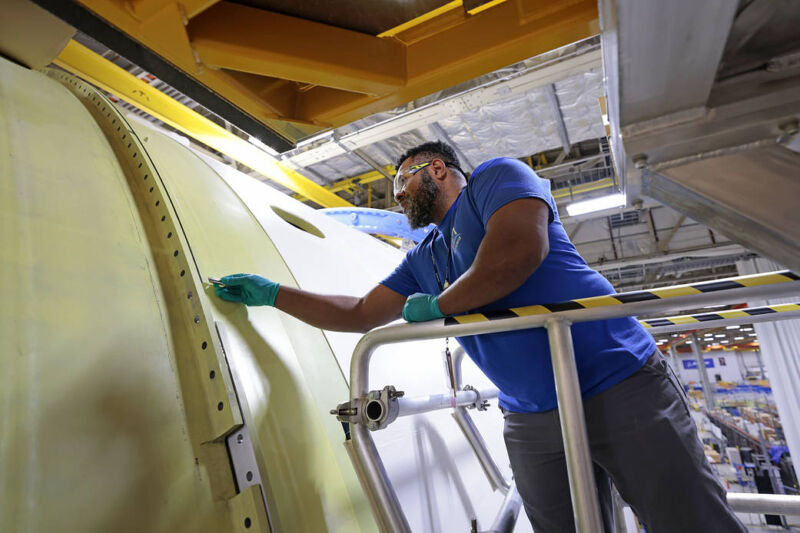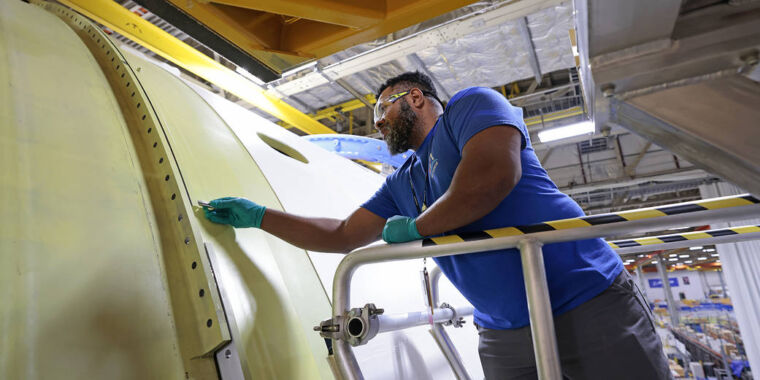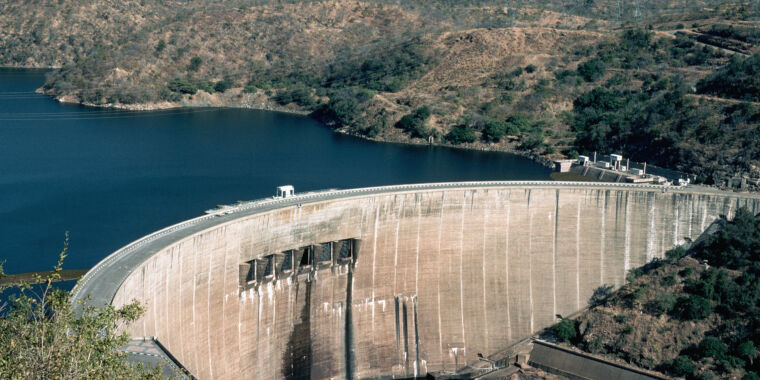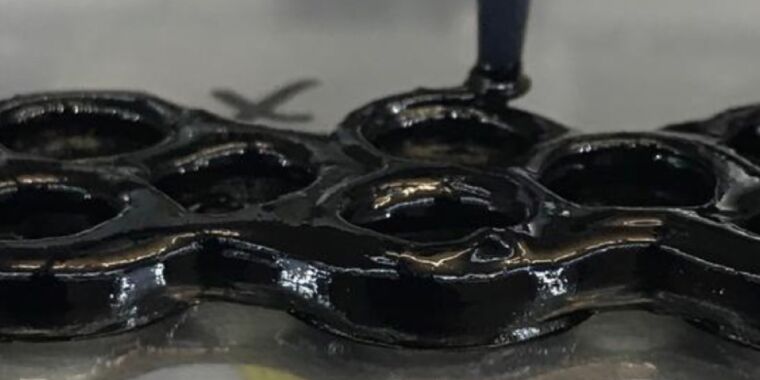
Welcome to Edition 6.06 of the Rocket Report! This week’s news in space lift includes ups and downs for small launch companies, yet another record for SpaceX’s blistering launch cadence, and some non-news on Europe’s Ariane 6 rocket that still bears mentioning. We also provide updates on the world’s two super-heavy lift rockets—NASA’s Space Launch System and SpaceX’s Starship/Super Heavy.
As always, we welcome reader submissions, and if you don’t want to miss an issue, please subscribe using the box below (the form will not appear on AMP-enabled versions of the site). Each report will include information on small-, medium-, and heavy-lift rockets, as well as a quick look ahead at the next three launches on the calendar.
10 am ET update: The list of upcoming launches at the bottom of the Rocket Report has been updated to reflect the successful liftoff of the Soyuz / Luna 25 and Falcon 9 / Starlink 6-9 missions.

Virgin Galactic flies first private passengers. Richard Branson’s private suborbital spaceflight company performed its second commercial flight to the edge of space Thursday. This was Virgin Galactic’s first flight with private passengers onboard, Ars reports. Virgin Galactic’s first commercial flight in June carried government astronauts for Italy.
The customers … The passengers on Thursday’s mission included the company’s first paying customer, an 80-year-old named Jon Goodwin, who competed for Great Britain in the 1972 Munich Olympics as a canoeist. He was joined by Keisha Schahaff and Anastatia Mayers, a Caribbean mother-daughter duo whose tickets were purchased by the nonprofit Space for Humanity to broaden access to space.
Astra announces layoffs. Astra says it has reduced its overall workforce by approximately 25 percent over the last few weeks, including a layoff of 70 staff members announced on August 4, primarily in the company’s launch, sales, and administrative divisions. In addition to the staff reduction, Astra says it has shifted around 50 employees from its launch services department to work on the company’s electric propulsion systems used by on-orbit satellites.
Trying to stay alive … The layoffs and shift in focus to spacecraft engines will delay the debut of Astra’s new small launch vehicle, called Rocket 4, CNBC reports. Last year, Astra moved away from its Rocket 3.3 vehicle earlier than expected to focus on the next version after its final Rocket 3.3 mission failed mid-launch. Astra is seeking to raise up to $65 million in a stock offering and last month said it planned to conduct a reverse stock split—an apparent effort to boost its struggling stock price. (submitted by colonelpanic and Ken the Bin)
Rocket Lab inks more launch contracts. Rocket Lab announced this week it has signed a contract for a block buy of five Electron launches with the remote sensing satellite company BlackSky, plus a deal with an undisclosed customer for a suborbital Electron launch from Wallops Island, Virginia. That brings the number of new launches purchased by Rocket Lab customers this year to 10.
Deep into R&D … While its Electron small satellite launcher continues flying for customers, Rocket Lab is deep into the development of the new medium-lift Neutron rocket. The R&D spending on Neutron was a large part of why Rocket Lab reported net losses in its latest quarterly financial statement. In the second quarter of 2023, Rocket Lab reported a net loss of nearly $46 million. Peter Beck, Rocket Lab’s founder and CEO, told CNBC that recent changes to the Neutron design have included a modification to the booster’s landing legs for downrange barge landings and a simplified payload fairing design. (submitted by Ken the Bin)
Rocket Factory Augsburg raises 30 million euros. The German small satellite launch company Rocket Factory Augsburg has raised 30 million euros from global investment firm Kohlberg Kravis Roberts & Co. (KKR), Space News reports. RFA is developing a liquid-fueled micro-launcher called RFA ONE that is designed to loft a payload of 1.3 metric tons (about 2,900 pounds) into a polar Sun-synchronous orbit.
Paying for the launch pad … RFA said the investment will facilitate an upcoming integrated test of the RFA ONE rocket’s first stage and will help complete the construction of the company’s launch pad at SaxaVord Spaceport in Scotland. The first launch of the rocket is scheduled for the second quarter of 2024, according to RFA. With its 30 million euro convertible bond investment, KKR will become a leading investor in RFA alongside the existing strategic investor OHB. (submitted by Ken the Bin)
Japan’s Interstellar aiming for 2025 launch. A Japanese startup named Interstellar Technologies is developing an orbital rocket called Zero to be ready for launch in 2025, Space News reports. Interstellar initially focused on a suborbital launcher named Momo, which has reached space three times. The Zero rocket is designed to send nearly a metric ton of payload into low-Earth orbit—more than Interstellar’s previous plan for an orbital launcher.
Static fire incoming … Interstellar plans a static fire test of Zero’s propulsion system later this year. The company says it plans to focus initially on meeting demand for small satellite launches from space agencies and universities in Asia, Australia, and New Zealand. Zero will launch from a new spaceport on the northern Japanese island of Hokkaido. (submitted by Ken the Bin)

Amazon switcheroo. Amazon has confirmed it plans to launch its first two Kuiper Internet satellite prototypes on a United Launch Alliance Atlas V rocket as soon as late September, Ars reports. The Kuiper test satellites were supposed to launch on ULA’s first Vulcan rocket, but that launch has been delayed to late this year, at the earliest, due to problems with the launch vehicle’s upper stage. Amazon wants to get the already-built satellites into orbit as soon as possible to validate the spacecraft design before moving into full production.
One of nine … Kuiper is a network of more than 3,200 broadband satellites that Amazon plans to deploy over the next few years. The Kuiper network is similar to SpaceX’s Starlink “mega-constellation,” which already has more than 4,000 satellites in orbit. Amazon has purchased 77 launches, half of which are on ULA’s Vulcan, to deploy the Kuiper satellites. Nine Kuiper launches are reserved on ULA’s Atlas V rockets, which are nearing retirement and will be replaced by Vulcan. Amazon will now use one of those nine Atlas Vs to launch the test satellites into orbit.








